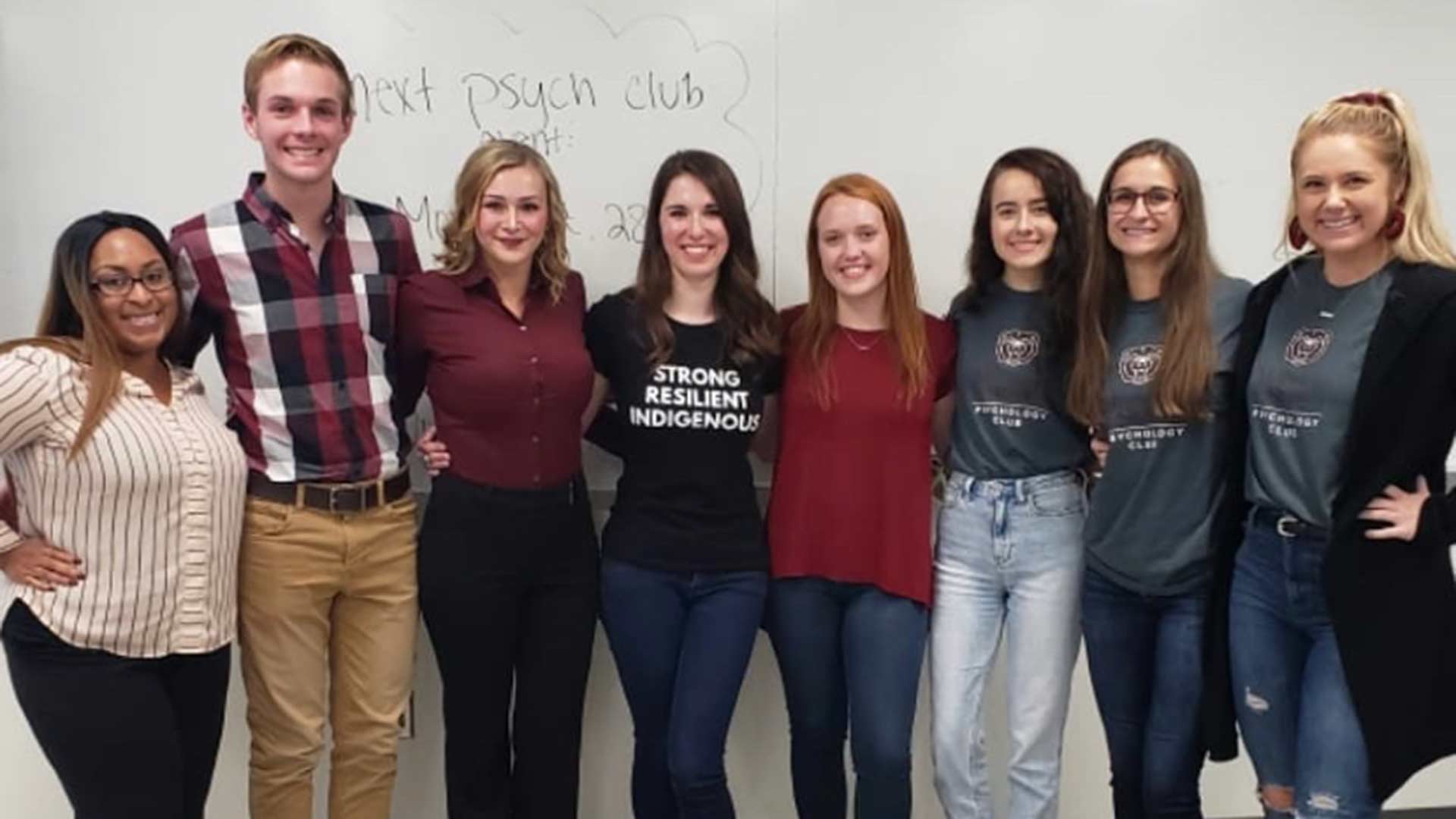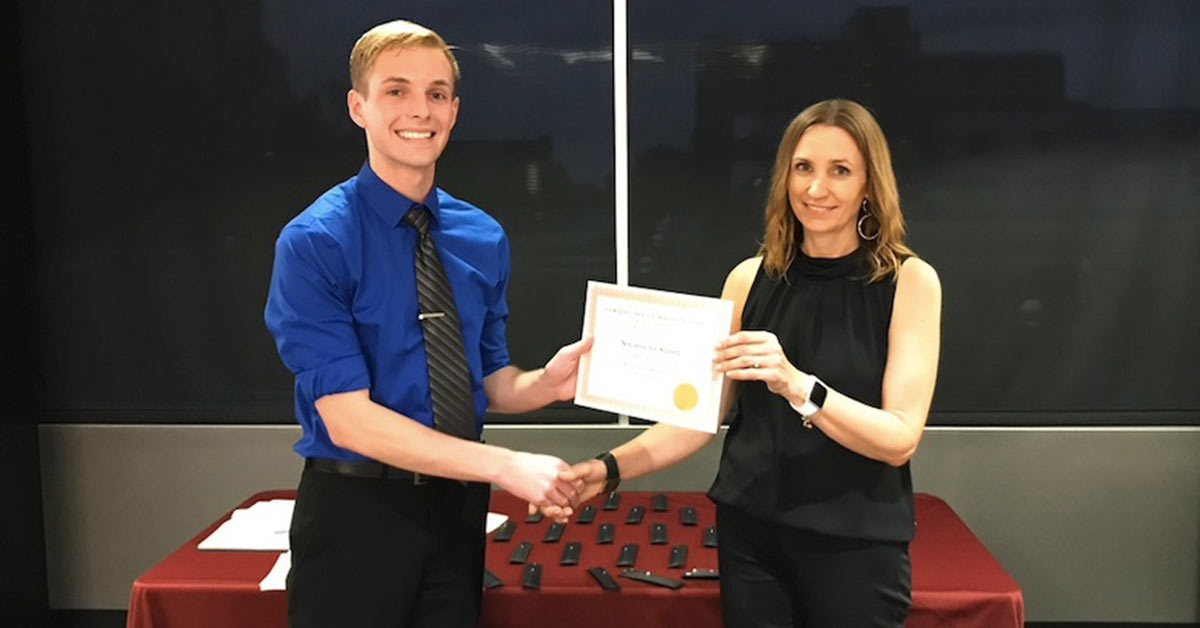Stoll volunteers at AIDS Project of the Ozarks. He’s an intern at The Victim Center, which provides support to victims of violent and/or sexual crimes.
He’s been a Resident Assistant (RA) for MSU’s Residence Life, Housing and Dining Services. He’s also a certified lifeguard instructor.
It’s all about helping people, he says.
“In high school, I had experiences that that resonated with me,” he said. “And I was like, ‘Wow, I want to help people.’”
When searching for colleges, Stoll found that Missouri State’s psychology major aligned with his goals and needs.
“I knew I wanted to be in a helping field, providing help to others, making sure that others were taken care of,” said Stoll, a northwest Missouri native. “And Missouri State was the best opportunity to travel and experience another corner of the world while staying in-state and going to a reputable university.”
Researching diversity and bias
Research is a vital part of the psychology program. Students can work with faculty on research projects.
Stoll got involved early.
By his second year in the program, he was helping Dr. Amber Abernathy with data collection. Abernathy’s research areas include personality and leadership traits.
“I wasn’t able to get super involved in her lab because of COVID… but I was able to do a literature search for one of her upcoming studies and just look through the literature and find related information and see how it connected together,” Stoll said.
A year later, he teamed with educational psychologists Dr. Adena Young-Jones and Dr. Ashley Payne. Their Educational Psychology Lab focused on diversity research.
“We worked on a scale that measures your exposure to diversity, different forms of diversity and like your thoughts and attitudes about that,” he said. “I’ve also worked with one of the graduate students in the lab. That study focuses on methods of collecting more accurate data on to health-related behaviors.”
“And then another study that focuses on meditation and implicit bias against race.”
“(MSU) offers so many courses that have specific interests for students. It allows us to tailor our education toward ourselves. My education is very unique and it supports what I value. It allows me to apply my education and my values to my future career.”
These research projects boosted Stoll’s experience and enhanced his skills.
Working under Dr. Young-Jones and Dr. Payne, he’s also gained two strong references for his resume.
“I knew they were people that I would want a letter of recommendation from, or people that I wanted to refer to in a year or so, or that would help me get into graduate school,” he said. “It really didn’t matter what they were working on because I knew that our strong interest in matters of diversity were going to work well regardless of the project.”
‘I can be who I am’

By coming to Missouri State, Stoll discovered a new, more welcoming community.
Stoll, who is gay, said he faced discrimination and bigotry as a teenager.
“I saw the lack of diversity and the lack of acceptance for diversity that many groups faced in a small town. It was something that outrages me, upsets me,” he said. “It resonated with me enough that I wanted to learn more about it and build my knowledge about subjects like that so that if I went back to Small Town USA, where I was from, I could have a set of tools to use to combat prejudice and discrimination.”
Along with being an RA, Stoll’s on the executive board of the psychology club.
As a student, he’s built close friendships and taken classes that matter to him.
“I’m more of a ‘quality’ than ‘quantity’ person, so I have relatively fewer friends but they’re the absolute best,” Stoll said. “One of my closest friends I met in the residence hall in my first year.
“And my education has really just been phenomenal. There’s so many opportunities to learn about specific subject matters of interest.”
Taking a new path
The COVID-19 pandemic gave Stoll insight into what he wanted to do.
He feared burn out if he became a licensed counselor. Pursuing a PhD in clinical psychology would take many more years of school.
With the flexibility of his bachelor’s degree, Stoll decided to use his psychology background to pursue a master’s degree in public health.
“Public health just kind of fit the other interests and passions I have. I’m a lifeguard and I enjoy teaching people CPR, working in the risk management side of things,’” he said. “When I put that together with my passion for mental health and diversity matters and my experience at APO and The Victim Center, it made sense that public health was something that I could pursue.”
After graduating from Missouri State in the summer of 2021, he’ll move to Colorado to begin his master’s program.
The job duties will differ, but he’ll still be doing what he loves: helping people.
“I want to work in the health field, whether that’s hospital administration or working at a nonprofit or in a health department at the local, state or federal level,” Stoll said. “I want to be doing something that’s coordinating, planning and giving leadership to matters of health.”

